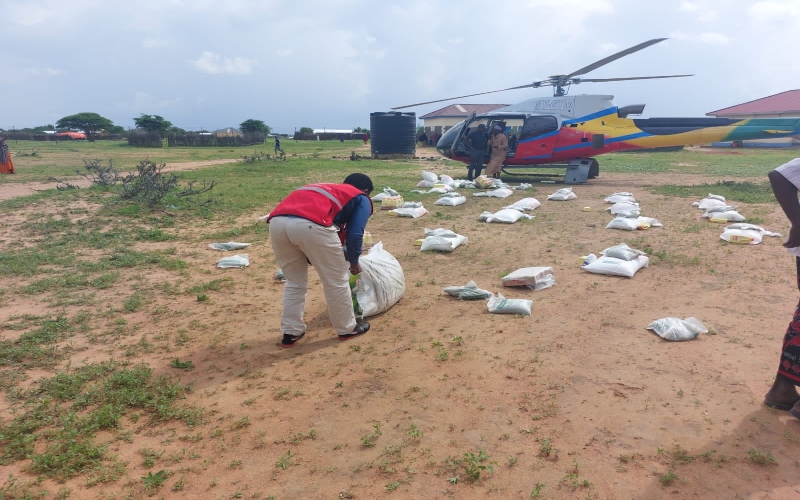Garissa transport sector embraces e-mobility in fight against global warming

They say that a decreased reliance on fuel marks a historic moment for Kenya and will help address the challenge of high fuel prices.
Garissa County's transport sector is in support of the government's plan to introduce electric mobility to address the challenges of global warming.
During a public participation forum in Garissa town on Monday, stakeholders approved the policy and urged the government to actualise it.
More To Read
- Sulfur-based batteries could offer electric vehicles a greener, longer-range option
- Mombasa electric bus firm suspends operations after staff threatened
- E-mobility drive: Kenya Power to install 45 EV charging stations across six counties
- What’s needed to grow the Electric Vehicles sector in Africa
- New shift in public transport in Mombasa as electric tuk-tuks launched
- Ethiopia bans fuel vehicles for foreign diplomats
Mohamed Ali Hassan, chairman of the Garissa Taxi Association, said a decreased reliance on fuel marked a historic moment for the country and would help address the challenge of high fuel prices.
"We nearly abandoned the transport sector due to hiked fuel prices. The goodwill message to end fuel usage is full of hope and no one will reject its approval. We urge the government to speed up its implementation," he said, noting that global warming is a serious concern that needs serious solutions.
He also noted that the initiative must have been preceded by extensive research.
Maxwell Otieno, chairperson of the Garissa Boda Boda Association, said they were willing to venture into e-mobility due to the increased fuel prices and the high cost of living,
Otieno noted, however, that they had no experience with electric motorcycles and would need teaching. He urged the government to implement the plan and ensure the availability of sufficient charging stations.
Youth representative Abdikadir Aden said they had long waited for the transformation to electric vehicles due to high fuel costs that cause public transporters to hike fares.
"Without a second thought, we urge the government to speed up the implementation of the policy," he said.
 Electric Mobility Task Force Member Michael Muchiri addresses stakeholders during a meeting at the Garissa County Government Guest House on April 22, 2024. (Photo: Issa Hussein)
Electric Mobility Task Force Member Michael Muchiri addresses stakeholders during a meeting at the Garissa County Government Guest House on April 22, 2024. (Photo: Issa Hussein)
Michael Muchiri, a member of the Electric Mobility Task Force, said there are about 4,000 electric vehicles in the country, a number that he noted would increase.
Muchiri assured transport stakeholders that the policy would help address existing challenges in the transport sector.
He said the draft National Mobility Policy 2024 will address issues including climate change, promote the local manufacture and assembly of electric vehicles, and develop and enhance e-mobility infrastructure and technical capacity.
"Enough research has been done to ensure the success of e-mobility. This is a new technology that has already been implemented in the developed world. All that is required is swapping your depleted battery with a fully charged one for you to continue with your journey," he said.
He added that researchers were working on ways to increase the distance covered by a single charge from 200 to 500 kilometres.
Muchiri further said that the Energy and Petroleum Regulatory Authority (EPRA) will introduce a special tariff for owners of electric vehicles, with the aim of cutting charging costs.
Garissa County's Environment Director Mulki Mohamed also approved the introduction of e-mobility, describing it as a major boost in addressing climate change challenges in the region.
"Apart from the fuel cost issue, we appreciate the initiative since we are victims of global warming. We experience severe droughts and floods attributed to climate shocks," he said.
Mulki urged the government to consider tapping into the Garissa solar plant, considered the largest in east and central Africa, in the provision of infrastructure for charging electric vehicles
In March 2024, the Ministry of Roads and Transport launched Kenya's first Electric Mobility Draft Policy in Nairobi, with Cabinet Secretary Kipchumba Murkomen describing it as a pivotal moment for Kenya, ushering in a new era in transportation.
Murkomen said the policy will guide e-mobility in all sectors—road, rail, air and maritime—by providing a transition framework from the use of conventional internal combustion engine vehicles.
Top Stories Today










































